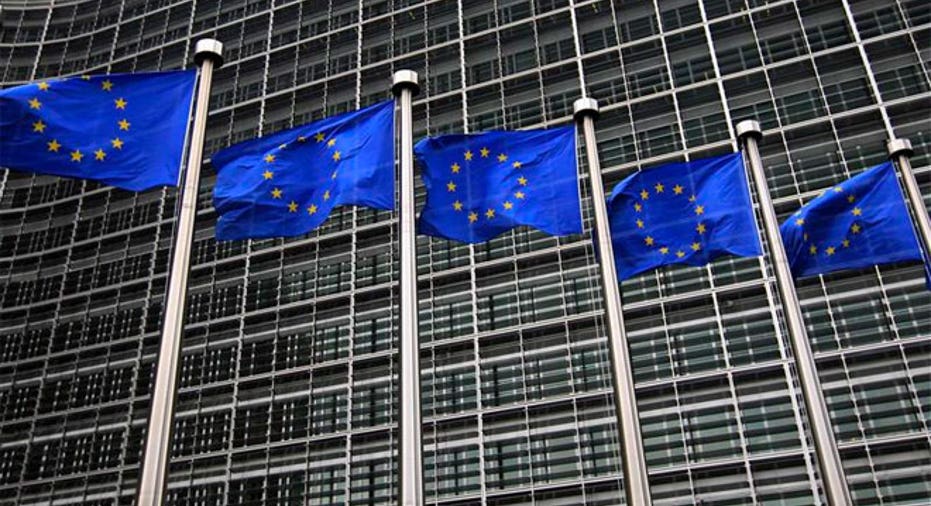Why Europe's Utopian Experiment Is Unraveling

“Those who cannot remember the past are condemned to repeat it.” – George Santayana
A couple of years ago, the European Union’s highest court ruled that people and events have the right to be forgotten. Individuals living in the EU can now demand that Google remove certain links in search results, even if they refer to lawful and accurately represented events.
Some thought the EU went too far with this landmark ruling, calling it a monstrous push down the slippery slope from a free society to a censored one. Once you begin that treacherous journey, there’s no turning back.
Actually, that was my position at the time. Still is. But this week, after the latest ISIS-related terror attacks took the lives of at least 30 people and injured hundreds more in Brussels, I understood that the EU was much further along that dark path than I’d originally thought.
For the leaders of a continent to forget that its utopian policies of blind trust and gutless appeasement toward an evil empire in the ‘40s cost millions of lives and nearly all its citizens their freedom, their memories are clearly not long enough. Either that, or they’re willingly self-censored.
As the Spanish-born American philosopher George Santayana said, “Those who cannot remember the past are condemned to repeat it.”
Not to fully equate the devastating atrocities of the Nazi regime to the growing threat of radical Islam, but I’ve never really been able to fathom how the EU could be so willfully blind to the perils of its current socioeconomic path. How its progressive philosophies are undermining the very foundation of its culture, its economy and its security.
Take its increasingly open border policies. They’ve allowed Islamic immigrants to form relatively self-contained communities that could easily foster the growth of radical terror cells. And the systematic dismantling of its defense and intelligence apparatus has left the continent surprisingly vulnerable to attack.
While each nation has distinct economic policies, they’re all essentially moving toward socialist-leaning public policies of onerous taxes and regulations and overly generous entitlements and safety nets. And that’s destroying incentives for personal achievement, sapping competitive spirit, throttling corporate growth and stifling innovation.
No wonder just 16 of the 146 venture-backed companies with valuations in excess of $1 billion are based in Europe, while 40 are headquartered in Asia and 88 are American. And while many European corporations still have powerful brands, they’re nearly all in older industries like automotive, luxury, food, apparel and banking. Of the 100 most valuable brands in the world, just one, SAP, is a European tech company.
After considering all this in light of Europe’s history, I now see a common philosophical thread underlying everything I couldn’t understand before. It’s simple, really. Europe is old school. It heralds from a time when people lived in the present without much interest in the past or concern for the future.
And that philosophy is a double-edged sword. It’s a great way of living, but an extremely narrow and utopian perspective in a global economy with diverse cultures and unfriendly neighbors.
It turns out that neither Albert Einstein nor Benjamin Franklin said, “The definition of insanity is doing the same thing over and over and expecting a different result,” but it’s still a brilliantly insightful observation. Although you can just as easily substitute “magical thinking” for the word “insanity.”
Don’t get me wrong. I don’t mean to imply that all Europe’s leaders are delusional. But if you spend enough time in the espresso cafes of Italy, the beer gardens of Germany, the restaurants of France, or the pubs of England, you’ll find a people that are much more in touch with the here and now than we are. They work less, take more vacations and enjoy life more.
There’s certainly nothing wrong with that. After all, most of us would kill for that kind of life. But it does rely on the rest of the world cooperating. Unfortunately, all cultures do not have the same values. Unilateral disarmament does not lead to peace. A global economy means competitive markets. And from a technology standpoint, the rest of the world has definitely moved on.
The problem with Europe is that it’s not alone. The rest of the world is not playing by the same rules. And no amount of magical thinking is going to keep its people safe, its companies prosperous and its culture intact. Maybe people should have a right to be forgotten. But if the European people insist on forgetting the lessons of the past, they’re in for a very dark future.



















